NOTES from the UNDERGROUND… No. 147 | July 27, 2008
A MEDITATION ON
“Getting It Out There”
by
Norbert Blei
MEDITATIONS ON A SMALL LAKE, Requiem for a Diminishing Landscape by Norbert Blei. Published by Ellis Press, David Pichaske, editor. 2008, $15, PO Box 6, Granite Falls, MN 56241Meditations on a Small Lake copyright 2008 by Norbert Blei. Originally published in 1987 by Ellis Press, Peoria, Illinois. Front Cover and page 71 art by Charles Peterson, Ephraim, Wisconsin. Back/inside covers, text page drawings by Emmett Johns, Fish Creek, Wisconson. ISBN: 978-0-944024-45-4
The easy part is writing a book. The hard parts include: finding a publisher; finding a newspaper, magazine, editor/reviewer/critic, somebody in the media to take note of your book; and (over the long haul) developing an audience of readers who will buy your book and look forward to purchasing your next one. They may not like everything you publish, but if you have touched them in any way with your words, if you have gotten hold of anything (in story, essay, poem) the way others see it, or may want to see it—you are on your way to establishing an audience.
The problem remains: the chasm between writer and reader. How do you find each other? Touch him/her? Cultivate them?
There’s always an outside chance every dream about your book comes true: agent, publisher, contract, advanced money, publication …book tours, bestseller list/sizzle, speaking engagements, movie options, prizes, university invitations/appointments, enough money to get you out of hock and almost make you comfortable for years to come. It happens.
But don’t count on it. There are some dreams that are best small…or forgotten. Most serious writers learn to live with these.
Let’s say the easy part is done. You have a first book (or another new one). And let’s say you’re holding the first copy in your hands .Finally. Now comes that hard part: getting it out there. PR, marketing, advertising, mail orders, readings, book signings, word-of-mouth… None of this a given by any publisher, large or small. None of it easy.
Friends and family can buy only so many books. The aura and excitement of publication fades quickly. Here’s your book. Here you are now, a published “author”… But nothing’s happening. Your parents smile and wish you had a real job. Your friends say, “Hey, nice! Congratulations,” may or may not buy copy—they have their own bills and busted dreams to deal with. Your spouse is thinking So what now? It’s still not bringing food to the table…contemplating greener pastures. Your Significant Other is feeling Insignificant. The attention you think your book deserves… that circle is smaller than you ever imagined…and grows smaller. You’re entering (or re-entering) the danger zone of no-man’s-land.
How to reach out? For writers who become disillusioned by the whole process, the question is not how? But why?
I would hate to estimate how many potential and practicing writers walk partway down “the road not taken”—turn back and take the other one which is more crowded and less unpredictable. How many of them give up, fail to develop, lose faith, see nothing but futility in attempting to live by one’s words alone. Years ago a friend of mine created this timetable: “If I don’t publish a book in the next few years…first I’m going to sell insurance. Then I’m going to shoot myself.” (He’s still alive. With a shelf of books to his credit.)
Shall we do the dance of promotion? Most writers and artists are notoriously bad at it. And even for those who are reasonably good at doing the hustle, find it more difficult these days as newspapers grow thinner, book sections disappear, advertisements are ineffective, and nobody knows your name. Everybody has more important things to do than pick up a book, and what readership remains often dwindles to “books-everybody-else-is-reading”—those books and non-books usually featured on major network-TV talk shows, often owned or in bed with the larger publishers whose books are being flogged…often by authors who lost their soul to the very nature of the corporate process of manufacturing books that sell. Not always true of course. But true enough.
Now I’m into ethics. This is all too large a problem to consider in so small a space.
Does the internet sell books? Well, yes. And no. Amazon.com sure does. But that’s another dance. So too bookstore signings, readings from every venue imaginable—living room book clubs, cofeeshops, bars, libraries, various speaking engagements–townhalls, beaches, parks, street corners… Most “underground writers,” have done them all, or will. And continue to do the dance to the end. Or walk off the floor.
Can you survive as a writer in America? Well, not really. Not anymore—if ever. It’s always THIS, and ‘that’—whatever else a writer has to do to make his life work. Too often ‘that’ destroys him. It all goes back to selling insurance and self-destruction. Or to mix some more metaphors, it’s a high-wire act. It was high-wire walker Karl Wallenda who said, “To be on the wire is life; all the rest is waiting,” shortly before he fell to his death.
But to return to the dance. In THE SECOND NOVEL (Becoming a Writer), December Press, 1978, (o.p.), I quoted Henry Miller for my forward:
You want to communicate. All right, communicate! Use any and every means…
At a certain point in my life I decided that henceforth I would write about myself, my friends, my experiences, what I knew and what I had seen with my own eyes. Anything else, in my opinion, is literature, and I am not interested in literature. I realized also that I should have to learn to content myself with what was within my grasp, my scope, my personal ken. I learned not to be ashamed of myself, to talk freely about myself, to advertise myself, to elbow my way in here and there when necessary…
You will have to do it yourself, dear man. Or do it as Homer did: travel the highways and byways with a white cane, singing your songs as you go. You may have to pay people to listen to you, but that isn’t an insuperable feat either. Carry a little “tea” with you and you’ll soon have an audience. —Henry Miller
To repeat: Can you survive as a writer in America? I can give you some references off the top of my head, writers of considerable record, history, persistency: Ask Todd Moore (New Mexico); John Bennett (Washington state); Ron Baatz (New York state); A.D. Winans (California); Grace Butcher (Ohio/Alaska); t.k. splake (upper Michigan); Dave Etter (Illinois); Ron Whitehead (Kentucky); Alan Caitlin (New York); Jack Saunders (Florida); Bob Arnold (Vermont); Larry Smith (Ohio); Tom Montag (Wisconsin); David Kherdian (California/New York); Bill Kloefkorn (Nebraska); Eric Chaet (Wisconsin); Ron Offen (Illinois); Gerald Locklin (California); Leo Dangel (South Dakota); Antler (Wisconsin); Lyn Lifshin (New York/Virginia); John Brandi (New Mexico); Kenneth Gangemi (New York); Don Skiles, (California); David Clewell (Missouri): …for openers, I could easily add a hundred more, not to mention the ghosts of Frances May, Cid Corman, and Curt Johnson…reading their works, knowing their lives, how and in what shape they made it to the finish line.
You can persist—though that doesn’t guarantee survival unless you define survival on your own terms. Some years ago in Bisbee, Arizona, I walked past what looked like a deserted storefront window, but seated only a short distance behind the window at a table was a writer with a stack of books. BUY MY BOOK his sign said. Which was unbelievable, funny, desperate, and almost scary. I’ve never forgotten that. Nor the fact I never went into the abandoned store to engage him in conversation. I was married at the time, living in a desperate emptiness of my own. I feared that’s what could become of me if I continued to believe I could write and survive.
If somebody, anybody, gives you the smallest break by way of encouragement or exposure…you gotta give thanks. Which was my intention when I began writing this—only to see the piece swerve into whatever the hell I have here so far. You have to thank anyone who in any way responds to your work, even negatively. Any attention at all is important to a writer’s survival., from a professional critic, to a writer whose work and judgment you value highly, to a friend who speaks from both heart and mind, to a stranger you meet on the street who simply tells you: “I really like your book.”
“Thank you.”
All of this by way of acknowledging Joe Knappen of the Door County Advocate, and Doug Moe of The Wisconsin State Journal for their reviews of MEDITATIONS ON A SMALL LAKE. Hopefully other reviews will follow, though I wouldn’t bet on it, given the writer’s situation discussed so far. Trust me, these two reviews alone are more than many serious writers in the Midwest (especially with smaller, regional presses) could ever hope for.
In addition to the newspaper reviews, I’ve decided to include/print the “unsolicited testimonials” I have received thus far. (Forgive me, I didn’t ask anyone’s permission and only used his or her initial and will gladly remove it if your are uncomfortable seeing your words in print.) What my friends, readers, fellow writers say and think, matters too–and plays a huge part in my own history of survival.
![]()
TREAT YOURSELF TO THE RE-RELEASE OF ‘MEDITATIONS’
by Joe Knappen
Door County Advocate,
May 24, 2008
Readers who know only the bluster of Norbert Blei might have missed the point.
To get a better grip on the writer and his favorite theme, readers might want to treat themselves to the re-release of “Meditations on a Small Lake,” an expanded version and third edition of his 1987 best selling book.
“Meditations” is a far from the powerful invective of Blei’s “Chronicles of a Rural Journalist in America”—compendium of columns published in the Door Reminder —or his sesquicentennial blistering of aspects of Peninsula life.
“Meditations” is more in keeping with Blei’s signature work, “Door Way, Door Steps and Door to Door.”
The three works went a long way to define and/or explain Door County, its characters and its special nature.
Indeed, “Meditations” is , all the word implies: Quiet, reverential, a devotional to the start beauty of his adopted landscape, a love letter to the fragile Peninsula.
In the 40 years since Blei escaped Chicago to settle into an old farmhouse in northern Door County, he has done nothing but write and help other writers write.
In that time, Blei has built a considerable body of work: stories, poems, public and commercial radio commentaries, public television programs, newspaper columns, magazine articles, online writing and books. Nearly all focus on Door County
The loss of the rural character and community of Door County continue to be recurrent themes in Blei’s print work and online writing (www.blei doorcountytimes.com) and books.
In April, Blei released the third reprinting of the 1987 book, and the “Meditations” continue to be a testament to changing times.
He remains staunch in his defense of preservation of the natural landscape — in Door County or any rural landscape threatened by over-development and crass commercialism.
Blei muses to pin down and define the quintessential elements that make Door County the place it is and explain why its people are the way they are.
The new edition contains three new essays, and the whole takes on a more mellow aspect, like exchanging an electric hard body for a mellow acoustic guitar.
Reenforcing the natural mode is the substitution of the original photographs of the first two editions with drawings by artist Emmett Johns.
The quiet cover drawn by Charles Peterson of Ephraim continues to retain its force in drawing the reader into the book.
Emmett Johns’ portrait of the author on the back cover is real enough to convince the readers they can hear the howl of the Coyote.
“Meditations on a Small Lake,” 122 pages in the il¬lustrated 2008 edition, can be obtained from Ellis Press, P.O. Box 6, Granite Falls, Minn., 56241 for $15 plus $2 for shipping and handling. The book can be | obtained from the author) at Norbert Blei, PO. Box 33, Ellison Bay, Wis. 54210.
[Joe Knaapen is the assistant editor of the Door County Advocate. Contact him at joeATdoorcountyadvocateDOTcom or at (920) 743-3321]
![]()
Emment Johns Illustration taken from Meditations on a small lake by Norbert Blei
![]()
BLEI’S WORDS STILL RESONATE IN REPRINT
by Doug Moe
Wisconsin State Journal
June 6, 2008
Norbert Blei doesn’t get angry so much anymore but when he does, he knows what to do. As one of Wisconsin’s foremost men of letters, Blei recalls Mark Twain, who said, “When angry, count four; when very angry, swear.”
In other words, we all must suffer fools and foolishness in this world, but there comes a time when enough is enough.
Now, thanks to Blei and Minnesota’s Ellis Press, discerning readers angered by the noise and mushrooming commercialism in everyday life have an option apart from swearing a blue streak in a primal scream room.
They might instead get themselves a copy of Blei’s “Meditations on a Small Lake,” a cult classic when first issued in 1987 and now reprinted in a fine new edition that includes three new essays and beautiful illustrations, including one of the author, by the artist Emmett Johns.
“It’s a hodgepodge of a book,” Blei said Wednesday, when I tracked him down at home in Door County. “But sometimes that can click.”
This one clicks. Blei offers a mix of his essays — alternately evocative and angry — on his beloved Door County with a selection of magazine and newspaper interviews in which Blei is the subject. Inevitably, the changing face of Door, where Blei moved from Chicago four decades ago, is the subject, too.
Madison-area readers will smile to see included in “Meditations” a piece on Blei written by the late Madison author and radio raconteur George Vukelich. Twin sons of different mothers, those two, sharing a love of literature, the land, and a bedrock belief that humor trumps pomposity every time.
In his piece, originally published in Milwaukee Magazine, Vukelich notes that a mutual acquaintance had warned him about Blei: “He’s different. It’s like a mixture of Studs Terkel and Henry David Thoreau.”
Vukelich could relate because George, who suffered a fatal heart attack in 1995, was himself a man of many parts, a political activist, environmentalist, writer and broadcaster. I remember him captaining a stool at the old Fess bar, telling stories. Norb Blei heard many of those same stories when Vukelich took his WIBA radio program “Pages from North Country Notebook” to a statewide audience on Wisconsin Public Radio.
“I miss him so much on the Wisconsin scene,” Blei said of Vukelich.
Vukelich’s use of the description of Blei as part Terkel, part Thoreau was particularly apt because Blei’s life and writing has frequently shifted between Chicago and Door County.
I met Blei for the first time in 2003 when he was in Madison to read at Canterbury from “Chi Town,” his collection of pieces on his native Chicago that remains my favorite of all his works. It had just been reissued by the Northwestern University Press so a new generation of readers could get Norb’s inimitable take on Chicago institutions like Nelson Algren, Mike Royko and the hot dog.
Blei’s favorite Madison place is Nick’s on State Street, but that first time we met at the Laurel Tavern on Monroe, because Norb had been meeting down the street with the University of Wisconsin Press about the possibility of their reissuing his Door County trilogy that began with “Door Way.” (That collaboration, alas, failed to come to pass.)
He drank Scotch at the Laurel and proved as provocative in person as he is on the page. He signed my copy of “Chi Town.” He promised to stay in touch, and he has.
This week, Blei said he is happy to see “Meditations” back in print. It has given him a chance to re-examine his complicated relationship with Door County, which he loves for its beauty and quiet spaces and hates because that same allure may be responsible for its ruin in the form of condos and commercial development. In the book, Blei notes ruefully that a condo developer once called to cheerfully tell the author he’d put a copy of one of Blei’s books in all his condos.
Still, there remain places in Door where Blei can find the quiet he seeks. He quotes Melville: “Silence is the only voice of our God.” He told me that a former Door resident, returning from Maine for the first time in two decades, recently offered this assessment: “It’s not that bad.”
The first reading for the new edition of “Meditations on a Small Lake” came about when Blei was talking with a friend of his who is minister of St. Paul’s Lutheran Church in Juddville, in Door County.
“The proper place to launch this book is a church,” Blei said.
“Use mine,” the minister said.
The reading is Monday evening. “It’s perfect,” said Blei, Wisconsin’s amiable contrarian. “Nobody knows where Juddville is.”
[Contact Doug Moe at 608-252-6446 or dmoeATmadisondotcom.]
![]()
Charles Peterson Illustration taken from Meditations on a small lake by Norbert Blei
![]()
UNSOLICITED TESTIMONIALS MEDITATIONS ON A SMALL LAKE
![]()
Just wanted to say what a GEM the revised edition of “Meditations” is! Pure Zen–in the feel of it in your hand; the black and white, spare drawings of Emmett’s; and, of course, in the words. The prologue and epilogue nearly made me cry, and the new color is perfect–the blue of the ever present, surrounding waters.
Comforting, but disturbing, to know that, though I’ve been coming here for 25 years now, you’ve been here over 40, and still don’t know what it is about this place…but maybe it’s that Ultimate Question–we finally have to accept that we don’t KNOW the answer, never will and that is the peace and purpose of all…
S.
![]()
I have read the prologue, the foreword, the epilogue. You know I don’t always agree with what you say, I don’t think you can “keep time in a bottle”, I think we are destined to evolve, to always be seeking and finding more. I wouldn’t want to live in Buckingham palace but I’m glad it exists. But even if I don’t always agree with what you say I always, always am awestruck and overcome with the way you say it. It is incredible how deeply you can embody each moment, feel every nuance, and then put it on paper in a way that enables, even forces, less perceptive people to enlarge their senses and experience it too. The epilogue especially. Oh, my God–catching a slap of wind in his eyes–hands curled warmly in black mittens—the wind in the tips of pine trees, –opens his mouth childlike, in communion, tasting the sacred quiet.
Maybe you do put time in a bottle. Charlie and Chester [from DOOR WAY] are caught in agate for the rest of us to see and remember the quiet beauty of their lives, for people long after we have “walked into our own shadows” as you put it. Maybe the exact circumstances will never be the same again, but you have caught them for others to remember and revere. probably for generations.
There is one place where you say it is not just the light, or the water or the light combining with the water that creates the mystique of Door county, that you are still searching for it and it is something spiritual, and that is so beautiful and so right. Everyone feels it. And that is what you are trying to save, to preserve. I understand that feeling and share it, and share wanting it to be saved. It is both tangible and intangible, and I think in a greater sense it is something within your own self Norbert, something that can’t be destroyed.
I think if you had never come to Door you would have found it in a Cathedral in the city when all the votive lights were lit, or in the glow of a woman’s cigarette beckoning from a dark door, or from the wild luridly colored lights on a wet city pavement. This “holy” thing is everywhere and everything. It is the presence of God, and you found it as much in Nik Klein who made rocking horses and the newsie and the hot dog seller as you did in James Farrell, or Charlie and Chester. And that is your great gift to witness and see it.
You are as the Gypsy said, “A seer.” and beyond that “a feeler.” You are able to see deeper and feel more and then give that gift to others, to open eyes and hearts.
B.
![]()
Emmett Johns Illustration taken from Meditations on a small lake by Norbert Blei
![]()
It is truly wonderful, lyrical, poetic, you at your writerly best. We never had a copy, for some reason, maybe just didn’t run across it when we came here in 1989.
G.
![]()
I don’t know if I’ve ever told you but it was “Meditations” (I picked it up at Passtimes Books, I think in 1994 or 95) that moved me to write to you about your other books and whether you did workshops. And I never never write those kinds of fan letters. You responded very graciously with plenty of info and a Clearing brochure. It took me another two years to get to the Clearing… When I got home…that year…after years of
floundering…I was committed and reaffirmed as a poet. It was at that point that I decided to make something out of my art.
So the long and short of it is that I can say absolutely that where I am as a poet today is a direct effect of having read “Meditations” back in 1994.
A
![]()
Part Terkel, part Thoreau, huh? And the soul and conscience of Door County, as well. I am glad you are reissuing “Meditations . . .” It really is time to reissue the trilogy too, isn’t it? Thanks,
N
![]()
Something in the Bible says a man cannot be a hero in his home town. You may be such in Door County and Chicago, but the commies in Mad-Town seem to appreciate your jaded view…
J
![]()
read it. great job. i am in fact reading the first edition. it’s great.
S
![]()
……as you know still my favorite [book] and I think one of Emmett’s best sketch’s……..you look like a “Goat” I have named “Hairy” that is too stubborn to go up on the roof!!
L
![]()
congrats…that’s a really good review–hope you sell a ton of copies.
If you ever want to come read at the coffeehouse I have a couple months open for the 08-09 season, including Dec 20 (reconnect w/yr Chicago-area friends/students and sell books for folks to give as xmas presents)
C
![]()
Emmett Johns Illustration taken from Meditations on a small lake by Norbert Blei
![]()
Thanks for sending the new edition of Meditations… It is vastly improved in visual appeal and readability. The livelier blue cover with white title and illustration, the great Emmett Johns sketches (including portrait of NB), and the improved type font of the text — all make for a sweet little volume! And the added essays are great! Especially liked the quote from Everyday Suchness…
C
![]()
I realized as you read tonight…You articulated my feeling about the spirit of the county and that led me to become involved… Great to see you and I thank you for responding to my letters—nearly fifteen years ago. It meant and means much to me. (gotta see if they’re worth anything on e-bay ..)
N
![]()
your book of lake meditations is keeping me company late at night. it has a warmth, beauty and wisdom that is downright soulful.
R
![]()
Charles Peterson’s cover drawing of a lone man in a boat captures the essence of everything in the book. I can’t keep my eyes off it. I can’t keep from opening the book again to any page, entering the beauty and silence you capture in words.
H.
![]()
The epilogue to the new edition of MEDITATIONS is so beautiful…
K
![]()
I wanted to write you a note and tell you how much I have enjoyed Meditations on a Small Lake…
It was wonderful!!!!!! I find it hard to believe that I had never read it before…
As I was reading it I was thinking…YES YES….as I feel many of the things you describe…so beautifully (“it’s the light … Moisture and light etc etc….)…….but could never express as you do…I enjoyed the story In defense of Abandoned Farms as I have always wondered about these places when walking or riding past them…
Emmett Johns drawings are so beautiful and such a gift to have in your book ~to think a person can create such lovely drawings with just pencil and paper…
I really thank you for making this lovely book is available again to us all….
L
![]()









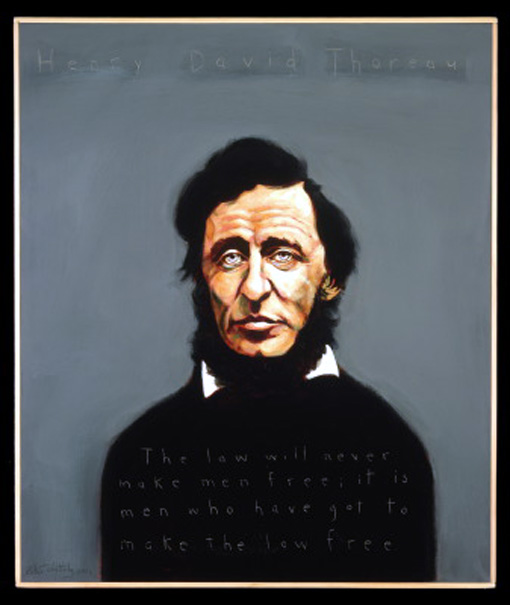

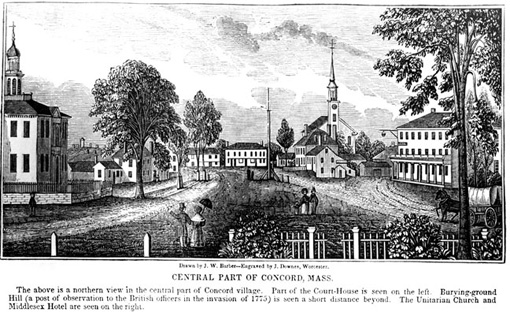



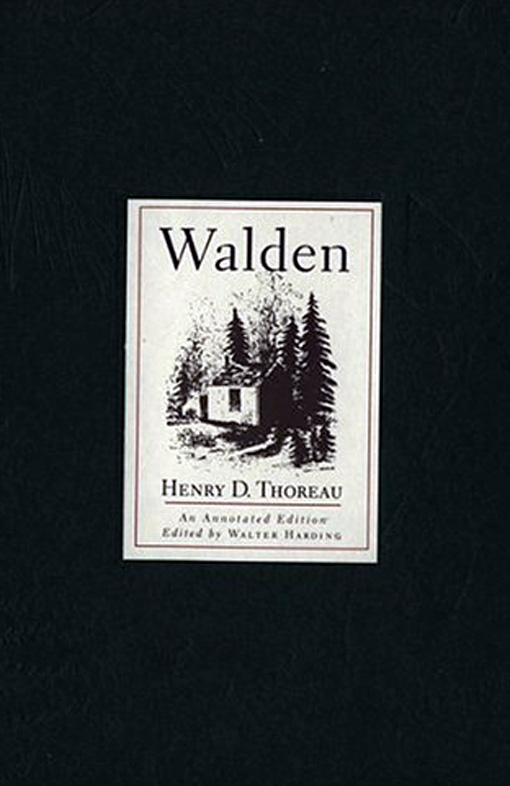








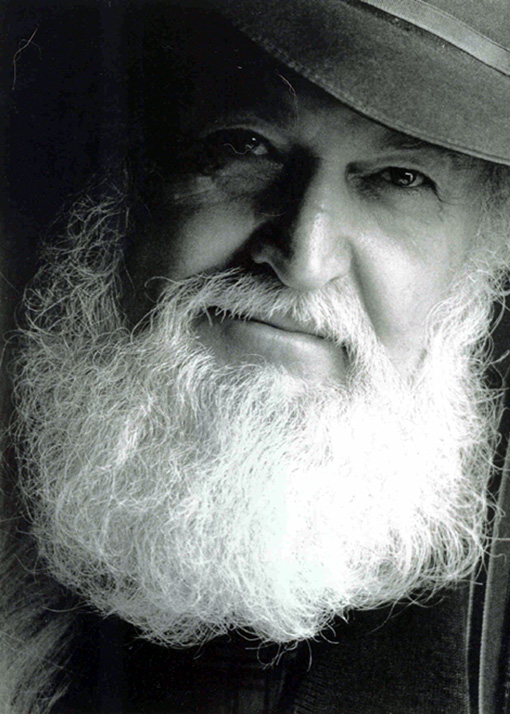

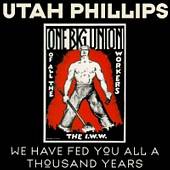



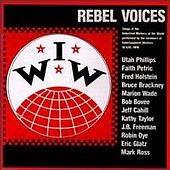
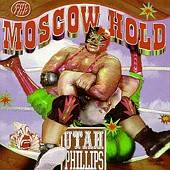

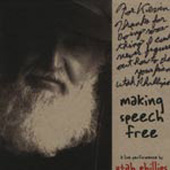

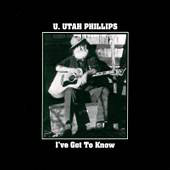
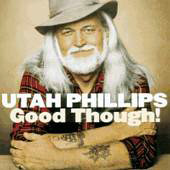




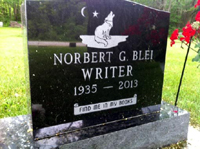



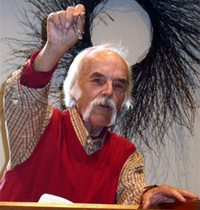




















































Recent Comments